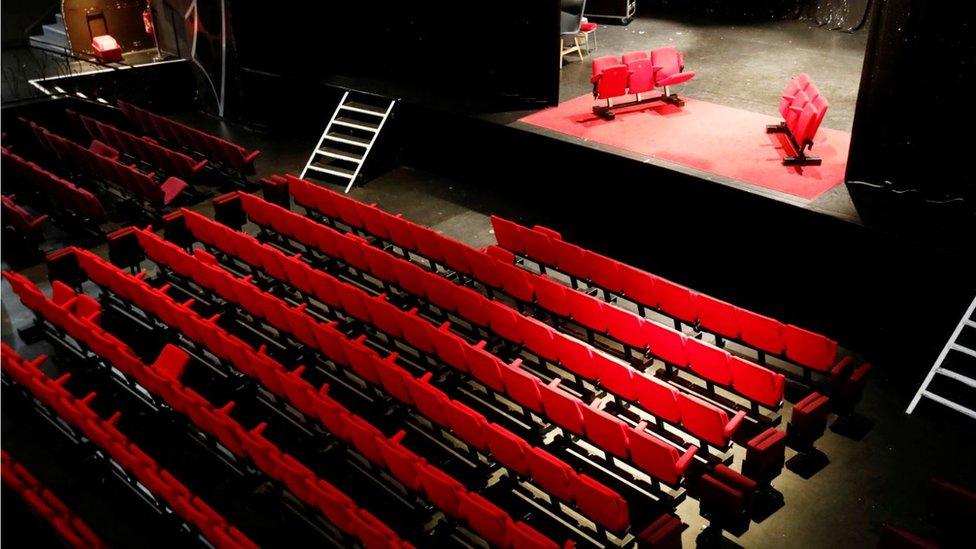Covid-19 funding: Individual artists get first share of £29m funding
- Published
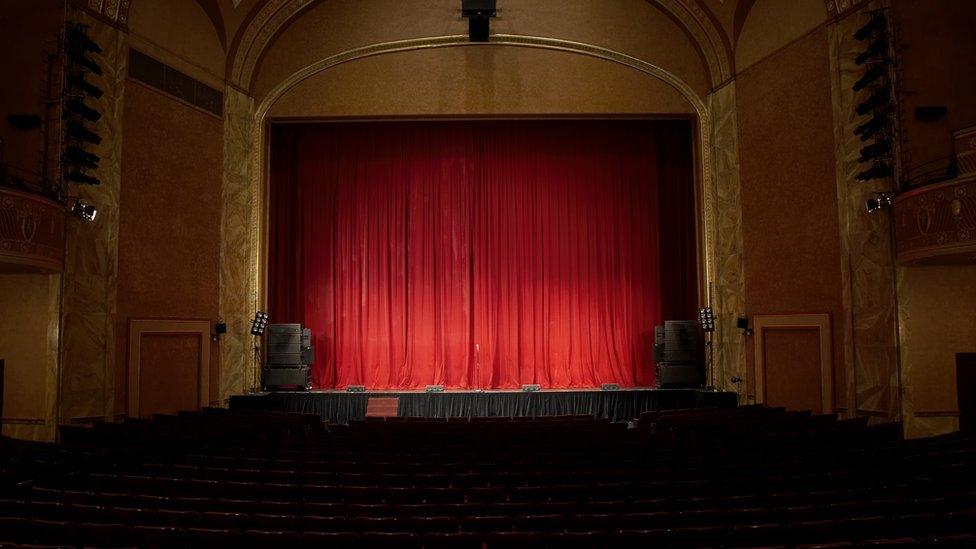
Theatres were ordered to close to curb the spread of coronavirus in March
Almost £3m of funding has been granted to individual artists as part of a support scheme operated by Communities Minister Carál Ní Chuilín.
It is the first distributed portion of £29m of funding approved by the executive to help venues and the arts.
Ms Ní Chuilín increased funding to an existing Arts Council (ACNI) scheme by around £2.75m.
It will enable almost 1,100 artists, actors, musicians and other arts workers to get grants of up to £5,000.
The Individuals Emergency Resilience Programme was opened by ACNI on 31 July and applications closed in mid-August.
It had a budget of £1.1m but was set to be heavily over-subscribed, leading to the communities minister to increase funding to the scheme to about £3.8m.
A previous scheme to provide emergency funding to artists who had lost income due to the coronavirus pandemic had to close due to high demand.
Theatres and other arts venues in Northern Ireland closed due to Covid-19 in March and still do not know when they can open to audiences again.
Arts sector curtailed
Concerts, gigs, festivals, plays and exhibitions have also been cancelled - though some have taken place online.
Ms Ní Chuilín said that a number of other funding schemes from the £29m for other sectors would be launched before the end of October.
"I wanted to get financial support on the ground at the earliest opportunity," she said.
"Using this existing funding mechanism means that freelancers, musicians, actors, artists and craft workers within the creative economy will receive much needed financial support as health restrictions continue to severely curtail the arts sector."
Arts Council chief executive Roisin McDonough welcomed the funding, saying: "Covid-19 has severely damaged the arts and culture eco-system and left the people who normally contribute to it and nurture it, without work or the means to create new work.
"Thanks to today's announcement, we are now able to provide funding of £3,852,000 to all eligible applicants, reaching 1,089 people within these sectors and offer them the support to develop new skills and create new work."
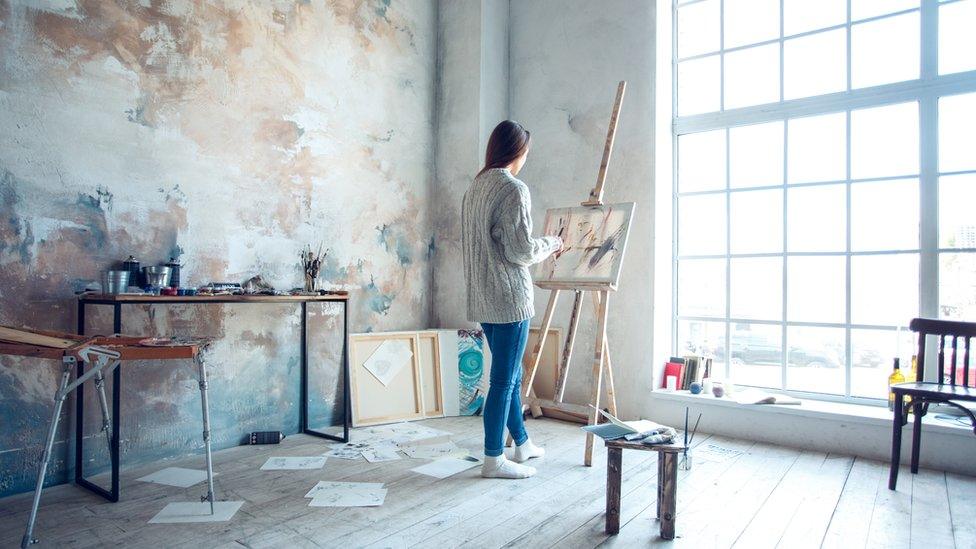
The first Arts Council fund for performers and artists was set up on 27 April
Actor and playwright Maria Connolly is among those waiting for a 'letter of offer' this week, in which she will learn how much, if any, support she will receive from the scheme.
"We've been on our knees over this past seven months so this will be a lifeline for many," she said.
"We've been trying to keep on going through the hardest time of our lives, and we'll keep doing it, despite the uncertainty about what's to come in the months ahead."
Ms Connolly was one of 150 performers who received a grant from the previous emergency scheme,
The funding made it possible for Maria and three other performers to stage a musical play, The Broads, in the midst of a pandemic on isolated areas outside hospitals and care homes.
Her three short plays about the lives of Judy Garland, Bette Midler and Marilyn Monroe were brought to an audience of psychiatric patients at the Royal Victoria Hospital, cancer patients at Belfast City Hospital and a number of elderly care home residents across Belfast and Lisburn.
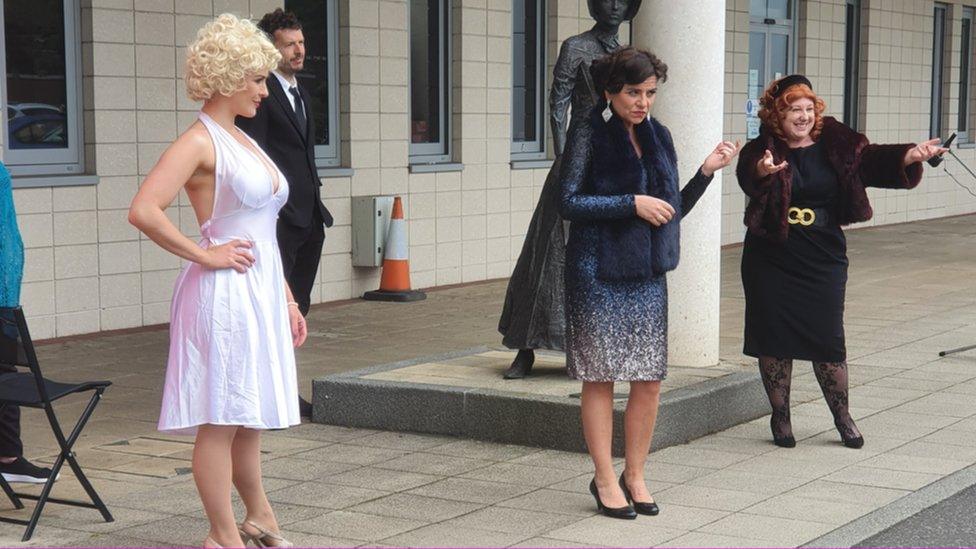
Maria Connolly (centre) performing alongside fellow actors outside Belfast City Hospital
But she said the £5,000 grant received for her performances was stretched very thinly - it was used to pay for two other actors, a musician and Ms Connolly herself, not to mention the other associated costs like fuel and costumes.
'It felt like we made a difference'
The Belfast-based performer said "doing something meaningful" was good for her own mental health.
"We managed to bring it to 1,600 people in isolation and the impact it had, even I didn't foresee it - I get emotional talking about it, but it really felt like we made a difference to these people's lives," she said.
"One woman told me she had her dress laid out in her room for days because she was so excited about the prospect of seeing a live performance.
"That kind of feedback lessens the pain of the last seven months that all of us in the arts industry have been feeling."
- Published13 May 2020
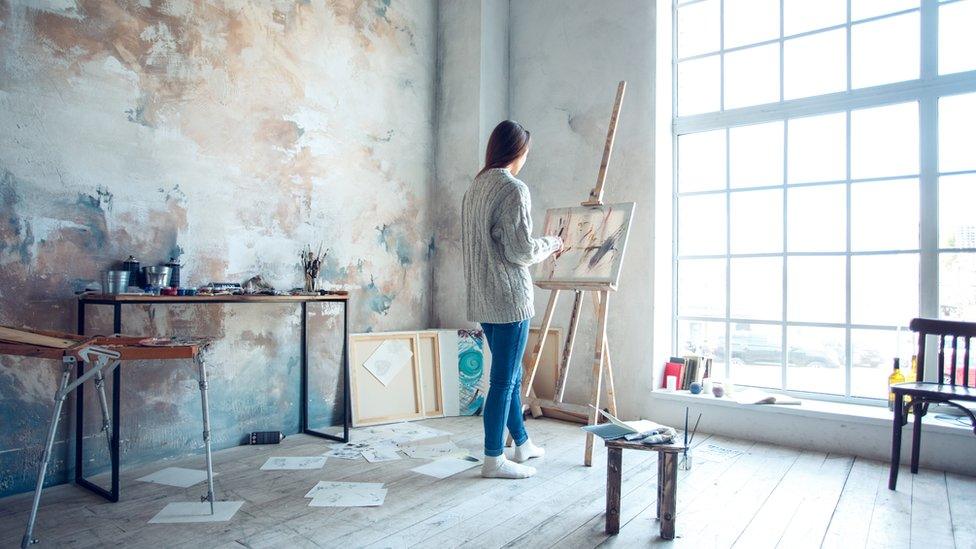
- Published24 September 2020
